Rugby Australia fight back in $30m legal fight with axed Super Rugby team Melbourne Rebels
Rugby Australia has hit back in a stunning counter-claim against the Melbourne Rebels in the legal case that has rocked the game, claiming they’ve been duped out of $35m.
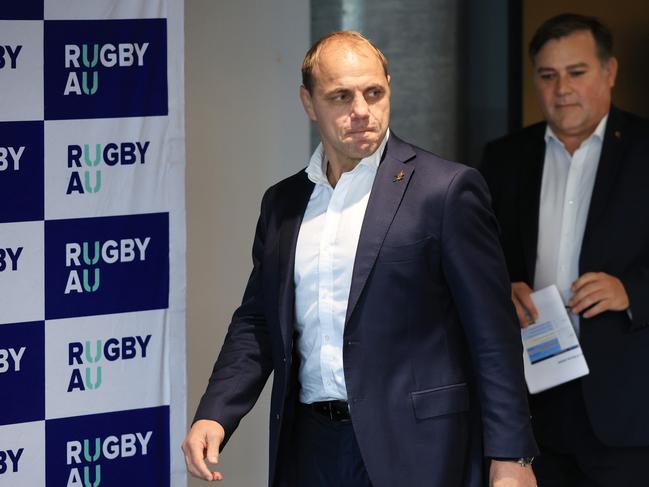
Rugby Australia will present a case that they lost $35 million after being ‘deceived’ by Melbourne Rebels directors, in a stunning counter-claim in the legal case that has rocked the game.
RA is preparing to hit back at the Rebels’ court case in the Federal Court of Australia, and will strongly suggest the directors of the club engaged in deceitful and potentially illegal behaviour.
It comes after the Rebels announced on Monday they were suing RA for $30 million in damages after the club was axed from the Super Rugby competition in May with debts of $23 million, including more than $11 million owing to the Australian Tax Office.
“Rugby Australia is disappointed by the Melbourne Rebels Rugby Union Pty Ltd’s inaccurate and misleading comments in the media and rejects the MRRU directors’ ambit claims and attempts to shift blame for their financial mismanagement,” a statement by RA said.
“RA reiterates that it has complied with all its contractual obligations to MRRU.
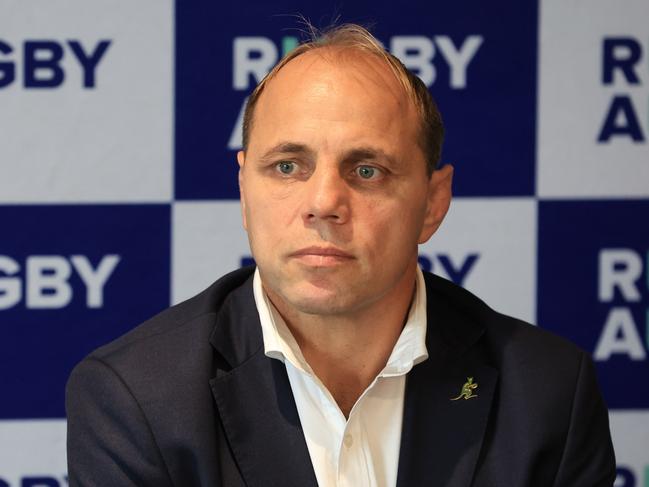
“RA is preparing a counterclaim against MRRU and its directors for misleading and deceptive conduct concerning the financial position of MRRU dating back to 2018. Based on that misleading and deceptive conduct, RA granted MRRU a participation licence for the Super Rugby competition and provided associated funding and payments to MRRU.
“Had RA not been misled or deceived, it would not have provided MRRU with a participation licence and thus not lost in excess of $35 million that was paid to MRRU since at least 1 July 2018.
“RA believes that the MRRU directors were knowingly concerned in and/or aided and abetted MRRU’s misleading and deceptive conduct.
“Given the insolvency of MRRU, its directors placed it into voluntary administration on January 29, 2024.
“The Administrator reported that MRRU had accumulated almost $23 million in debt prior to entering voluntary administration and noted that MRRU’s directors may have traded while insolvent from 31 December 2018, which is a breach of the Corporations Act.
“The Administrator also stated that the reasons for the company’s financial challenges were a history of trading losses, lack of readily available alternative funding sources, an excessive cost structure compared to the underlying revenue base, and insufficient revenue generated from non-RA sources including membership, sponsorship and game day receipts.
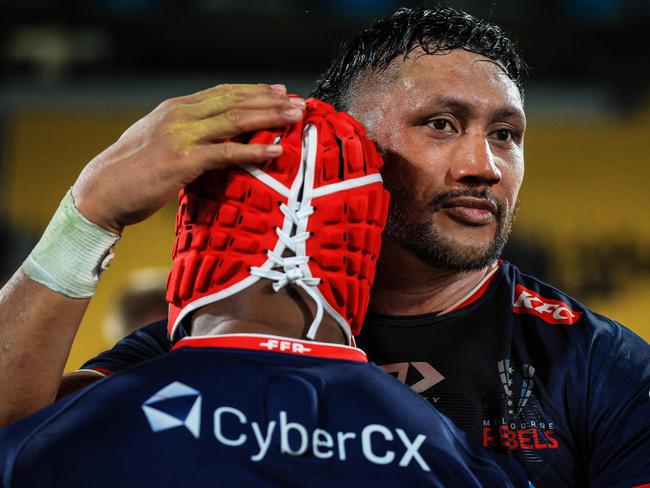
“RA was notified by the Administrator that the directors of MRRU had received ATO Director Penalty Notices. RA received a garnishee order from the ATO in December 2023. MRRU never informed RA of the Director Penalty Notices.
“After MRRU was placed into administration, RA stepped in to fund all operations of the Melbourne Rebels in 2024, paying player and staff wages, and meeting all associated statutory obligations connected with those payments for the entirety of the 2024 Super Rugby Pacific season.
“As the national governing body, RA will continue to do what is in the best interests of the game nationally and remains focused on protecting and promoting rugby across Australia.”
But a statement issued by the directors of MRRU said: “We anticipated in their defence that Rugby Australia would make completely false and self-serving counter-claims about the Rebels. We believe this to be a desperate attempt to deflect attention from the reality of the situation that the RA Executive and Board have put the sport into.
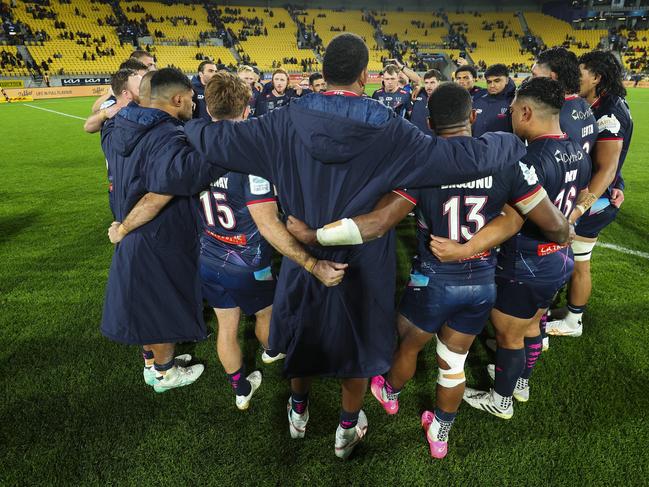
“RA asserts that had [they] known of the extent of the financial challenges of the Rebels, they would not have allowed the Rebels continued participation in the competition. This is complete nonsense for these reasons:
“RA cannot credibly claim ignorance of the Rebels’ financial difficulties, as there is ample evidence, including RA’s own communications, that they were fully informed and engaged with these issues. This includes specific references by RA to clubs being in ‘severe financial distress’, making any claim of surprise implausible.
“RA reaped all the benefits from the Rebels’ participation in the competition, including media and broadcast deals. What loss can RA possibly demonstrate on account of the Rebels ongoing participation?
“We want an independent person to decide whether the conduct of Rugby Australia meets the standards required by law – and that will now be a Federal Court Judge.”
But among the Rebels’ points of contention, through documents launched in the Federal Court, will be that the club continued paying players after the 2020 Super Rugby competition had been cancelled due to Covid-19. When the players joined Wallabies camp for up to six months, eventually playing in a reduced Tri Nations tournament with New Zealand and Argentina, the Rebels continued those payments.
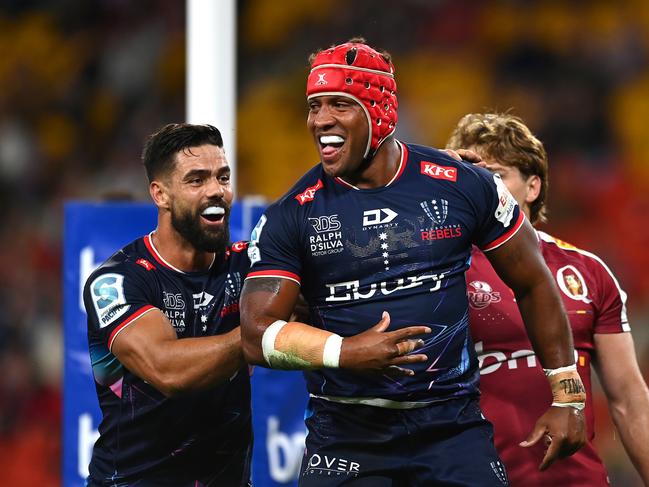
They will claim RA should have foot the bill for wages and taxes.
The court documents also suggest they will also attack RA’s bungled attempt to garner between $150-$300 million from private equity under a campaign they called “Project Aurora”, that would give the successful investor 20 per cent ownership of RA’s commercial rights.
Project Aurora was pitched to Super franchises as the method to secure rugby’s long term future, and the franchises signed off on RA’s proposal to seek out a partner in January 2023.
But by September, it had become clear to RA that private equity firms weren’t going to invest the money they sought, saying they were overvaluing their product. That is why they took the $80 million debt facility.
The Rebels will claim that between January and September, RA withheld crucial information about the private equity process and interest it was attracting.
Essentially, their case will be that they weren’t fully informed that PE firms weren’t interested in rugby’s rights, and if they had been, could have started their own campaign for additional revenue far earlier than September 2023 when the pursuit for PE was finally dumped.
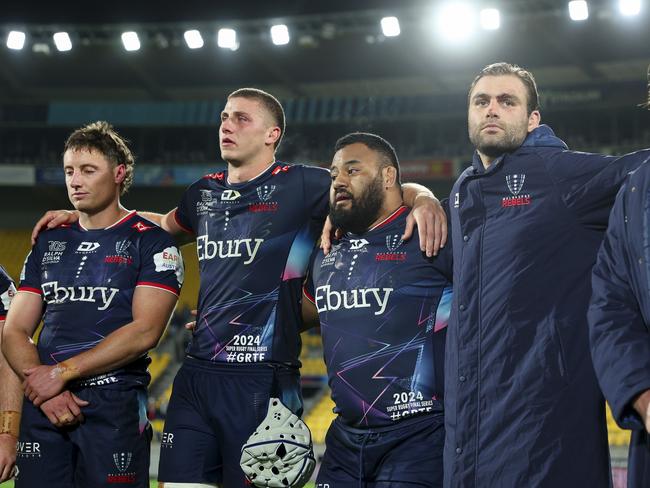
These technical arguments will be crucial to what played out next, and what the financial ramifications for RA may be in this case.
The Rebels went into voluntary administration, and an ensuing audit from PricewaterhouseCoopers said the Rebels had traded insolvent for five years.
That has enormous professional and personal reputational damage for Rebels directors, including Georgia Widdup, Tim North KC, Lyndsey Cattermole, Gary Gray, Owain Stone, Neil Hay and Dominic Shipperley.
If the Rebels win their case against RA, they will be seeking millions of dollars from the governing body to repair this damage.
So the case is much bigger than whether the Rebels can simply re-enter the Super Rugby competition from 2026.
“The conduct of Rugby Australia in destroying the Rebels – the men’s and women’s teams – demonstrates an appalling lack of judgement by the national body,” a Rebels statement said.
“The directors have reserved their right to seek future compensation from RA for personal damages inflicted on them by RA.
“With backing from the Private Equity backed consortium, the Rebels can be back on the field at a new home in Tarneit in Melbourne’s western suburbs as soon as the Court clears the path.”
The significant legal costs from this Rebels challenge – regardless of the financial outcome – will test the immediate resources of RA.






To join the conversation, please log in. Don't have an account? Register
Join the conversation, you are commenting as Logout